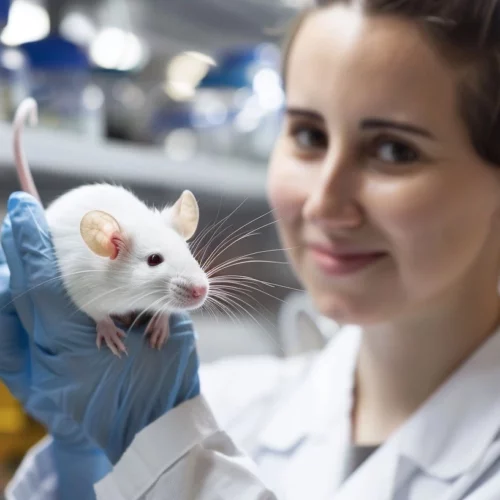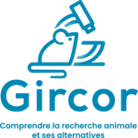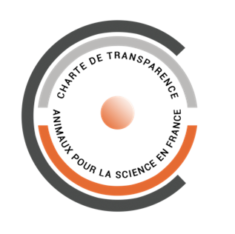
French version / Version française
Antineo is committed to advancing the understanding of tumor development mechanisms and supports its clients in designing new anticancer drug candidates while considering their impact on the whole organism (toxicity, absorption, elimination). Animal research plays a central role in advancing scientific knowledge and developing new therapeutic solutions. However, this practice is governed by strict regulations to ensure animal welfare.
Regulations on Animal Use in Research
Animal experimentation in biomedical research is governed by European Directive 2010/63/EU, transposed into French law through Decree No. 2013-118 and specific orders dated February 1, 2013. This regulatory framework establishes requirements to ensure ethical practices and animal welfare across several key areas:
- Facility Accreditation: Research facilities must obtain accreditation from the Ministry of Agriculture and Food Sovereignty, which assesses their ability to ensure animal welfare and comply with applicable regulations.
- Training and Qualifications of Personnel: Professionals involved in animal research must be qualified to ensure animal welfare and conduct experiments ethically. At Antineo, staff receive rigorous training in handling techniques, injections, and sampling, with continuous education and mandatory training in animal welfare.
- Project Authorizations: Projects involving animals require prior authorization. Researchers must submit a detailed project proposal that includes ethical justifications and demonstrates adherence to the 3Rs principles. Antineo's projects are reviewed by an independent ethics committee and approved by the Ministry of Higher Education, Research, and Innovation.
The Principles of the 3Rs
In compliance with regulations, Antineo adheres to the 3Rs principles (Replace, Reduce, Refine), introduced in 1959 by biologists William Russell and Rex Burch. These principles form the foundation of ethical animal research and are based on the following elements:
- Replacement: Whenever possible, the use of animals is replaced by alternative methods, such as computer models (in silico) or cell culture (in vitro). Antineo invests in innovative techniques like 3D bioprinting of tumors and creating tumor spheroids from cell lines.
- Reduction: The number of animals used is minimized by standardizing procedures, utilizing imaging technologies, optimizing statistical protocols, and adopting study designs that limit euthanasia at the end of experiments.
- Refinement: Procedures are optimized to reduce pain and stress for the animals. This includes appropriate anesthesia and analgesia practices and identifying early indicators of discomfort that may require immediate cessation of the procedure.
Antineo's “Culture of Animal Care”
Animal welfare is at the heart of Antineo's values. By signing the GIRCOR Transparency Charter, Antineo acknowledges the sensitivity of animals and commits to promoting transparency regarding its practices to the public.
Antineo restricts its use of laboratory animals to two species: the mouse (Mus musculus) and the rat (Rattus norvegicus). These animals receive care and housing tailored to their physiological needs.
You can take a virtual tour of our animal facility here: Visit Our Virtual Animal Facility
For any questions about our use of animals, please contact our team through our contact form.
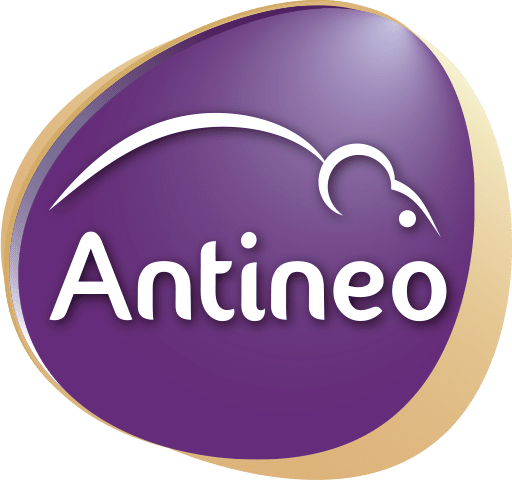
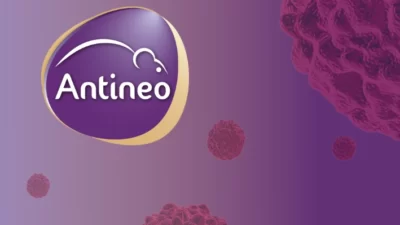 Antineo
Antineo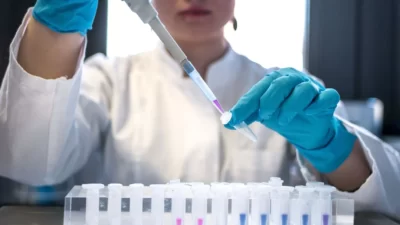 Preclinical services
Preclinical services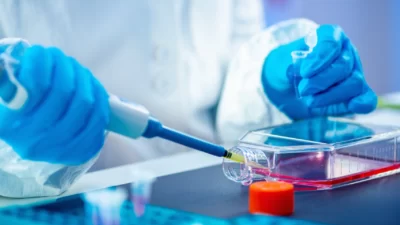 Tumour models
Tumour models Our Strengths
Our Strengths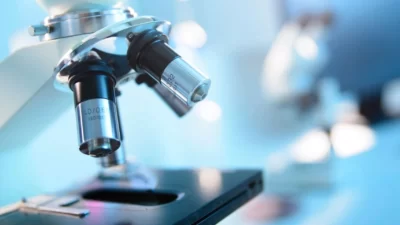 News & Events
News & Events